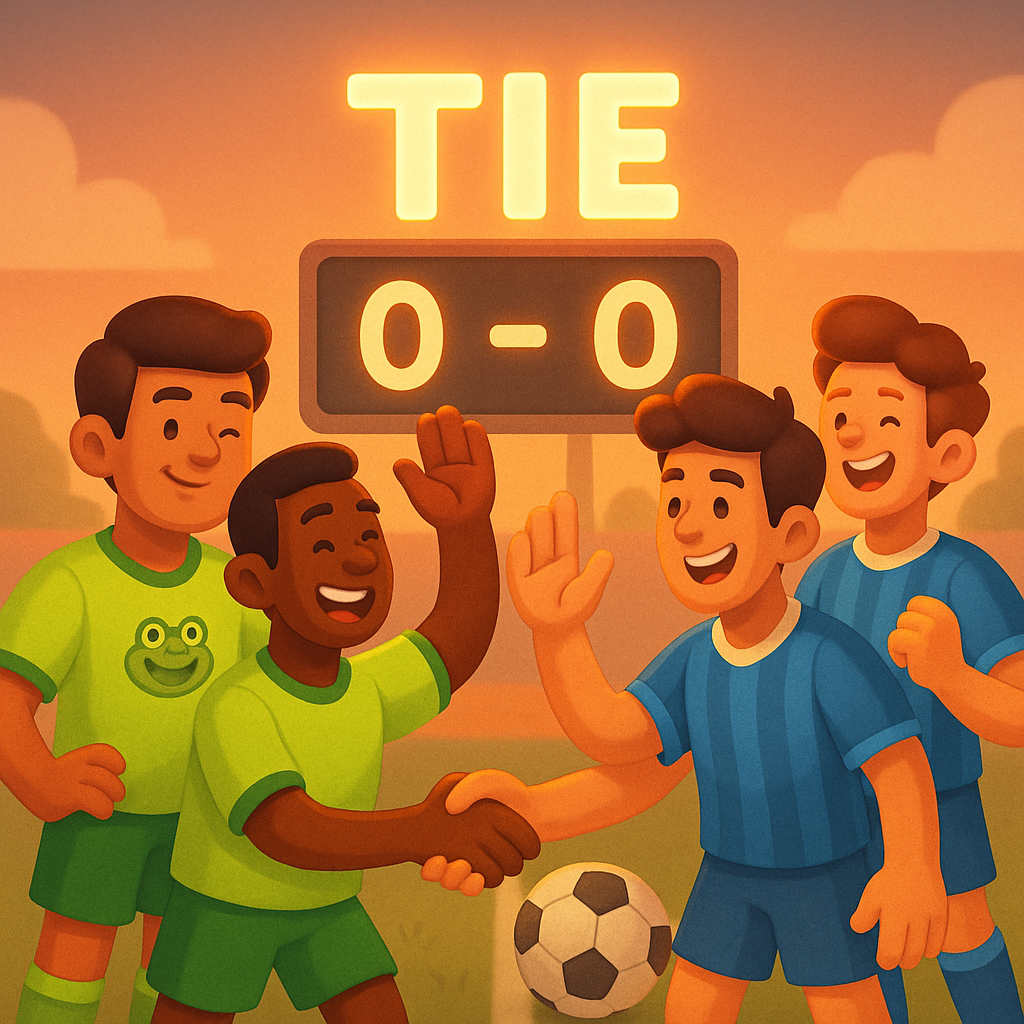Tie
Definition
Tie refers to fastening or securing something with a string, rope, or similar material. It also denotes an equal score in a competition or a decorative strip of fabric worn around the neck as part of formal attire.
Parts of Speech
- Verb
- Noun
Pronunciation
American English
- IPA Pronunciation: /taɪ/
- Respelling: tye
British English
- IPA Pronunciation: /taɪ/
- Respelling: tye
Etymology
The word "tie" originates from Old English "tīgan," meaning "to bind or fasten," related to the Old Norse "tīga" and Proto-Germanic "*taugjaną." The noun form emerged in the Middle English period to denote connections or bonds.
Derivatives
- Tied (adjective/verb)
- Untie (verb)
- Re-tie (verb)
- Tie-up (noun)
- Tieback (noun)
Synonyms
- Bind
- Knot
- Fasten
Antonyms
- Untie
- Loosen
- Release
Usage
As a verb, "tie" is commonly used to describe the action of securing or fastening. For example, "He tied the rope to the tree."
As a noun, "tie" refers to a fabric accessory or a drawn result in sports. For example, "He wore a red tie to the event," or "The game ended in a tie."
Related Terms
- Knot: A fastening made by tying rope, string, or fabric.
- Braid: Interlacing strands of material.
- Draw: An equal score in a contest.
Detailed Definitions
Verb
- To fasten or secure: Refers to binding or connecting using string, rope, or similar materials.
- Example: "She tied the parcel with a ribbon."
- To restrict or constrain: Describes limiting someone or something.
- Example: "His job ties him to the city."
- To result in an equal score: Refers to achieving parity in a competition.
- Example: "The two teams tied in the final match."
Noun
- A decorative neck accessory: Refers to a strip of fabric worn as part of formal attire.
- Example: "He bought a silk tie for the interview."
- A drawn result in a game or contest: Indicates an equal score between participants.
- Example: "The soccer match ended in a tie."
- A bond or connection: Represents a link or relationship between entities.
- Example: "Family ties are important to her."
tie



🇨🇳 Chinese (Mandarin)
- 系 (to tie)
- IPA Pronunciation: /ɕi̯e˥˩/
- English respelling: xì
- 领带 (tie as a piece of clothing)
- IPA Pronunciation: /li̯əŋ˥˥ tʰaɪ̯˥˩/
- English respelling: lǐngdài
🇮🇳 Hindi
- बाँधना (to tie)
- IPA Pronunciation: /baːnd̪ʱn̪aː/
- English respelling: baandhna
- टाई (tie as a piece of clothing)
- IPA Pronunciation: /ʈaːi/
- English respelling: taai
🇪🇸 Spanish
- Atar (to tie)
- IPA Pronunciation: /aˈtaɾ/
- English respelling: atar
- Corbata (tie as a piece of clothing)
- IPA Pronunciation: /koɾˈβata/
- English respelling: corbata
🇫🇷 French
- Attacher (to tie)
- IPA Pronunciation: /a.ta.ʃe/
- English respelling: attacher
- Cravate (tie as a piece of clothing)
- IPA Pronunciation: /kʁa.vat/
- English respelling: cravate
🇸🇦 Arabic (Modern Standard Arabic)
- ربط (to tie)
- IPA Pronunciation: /rabaʈʈ/
- English respelling: rabat
- ربطة عنق (tie as a piece of clothing)
- IPA Pronunciation: /rabaʈʈa ʕunuq/
- English respelling: rabatta 'unuq
🇧🇩 Bengali
- বাঁধা (to tie)
- IPA Pronunciation: /bad̪ʱa/
- English respelling: badha
- টাই (tie as a piece of clothing)
- IPA Pronunciation: /ʈai/
- English respelling: tai
🇷🇺 Russian
- Завязать (to tie)
- IPA Pronunciation: /zɐˈvʲjæzətʲ/
- English respelling: zavyazat'
- Галстук (tie as a piece of clothing)
- IPA Pronunciation: /ɡalˈstuk/
- English respelling: galstuk
🇵🇹 Portuguese
- Amarrar (to tie)
- IPA Pronunciation: /ɐmɐˈʁaɾ/
- English respelling: amarrar
- Gravata (tie as a piece of clothing)
- IPA Pronunciation: /ɡɾɐˈvatɐ/
- English respelling: gravata
🇮🇩 Indonesian
- Mengikat (to tie)
- IPA Pronunciation: /məŋikat/
- English respelling: mengikat
- Dasi (tie as a piece of clothing)
- IPA Pronunciation: /dasi/
- English respelling: dasi
🇩🇪 German
- Binden (to tie)
- IPA Pronunciation: /ˈbɪndən/
- English respelling: binden
- Krawatte (tie as a piece of clothing)
- IPA Pronunciation: /kʁaˈvatə/
- English respelling: krawatte
🇯🇵 Japanese
- 結ぶ (to tie)
- IPA Pronunciation: /mʲɯᵝsʲɯᵝ/
- English respelling: musubu
- ネクタイ (tie as a piece of clothing)
- IPA Pronunciation: /nek͍ta.i/
- English respelling: nekutai
🇻🇳 Vietnamese
- Buộc (to tie)
- IPA Pronunciation: /ɓwəwk̚˧ˀ˦/
- English respelling: buộc
- Cà vạt (tie as a piece of clothing)
- IPA Pronunciation: /kaː˧ˀ˦ vəːt˧ˀ˦/
- English respelling: cà vạt
🇰🇷 Korean
- 묶다 (to tie)
- IPA Pronunciation: /muk̚t͈a/
- English respelling: mukda
- 넥타이 (tie as a piece of clothing)
- IPA Pronunciation: /nek̚.tʰa.i/
- English respelling: nekta-i
🇹🇷 Turkish
- Bağlamak (to tie)
- IPA Pronunciation: /baːɫaˈmak/
- English respelling: baglamak
- Kravat (tie as a piece of clothing)
- IPA Pronunciation: /kɾaˈvat/
- English respelling: kravat
🇵🇰 Urdu
- باندھنا (to tie)
- IPA Pronunciation: /baːndʱnaː/
- English respelling: bandhna
- ٹائی (tie as a piece of clothing)
- IPA Pronunciation: /ʈaːi/
- English respelling: taai





